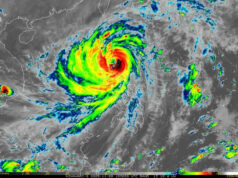THE PESO recovered versus the dollar on Wednesday following the contraction of the US manufacturing index and amid geopolitical concerns.
The local unit ended at P51.935 against the greenback yesterday from Tuesday’s P52.31-per-dollar close, gaining 37.5 centavos.
The peso opened at slightly stronger at P52.25 versus the greenback. The market saw a volatile trading session as the local currency’s weakest point was at P52.93, while its intraday best was at P51.92 against the dollar.
Dollars traded on Wednesday thinned to $1.282 billion from the $1.336 billion that changed hands on Tuesday.
One trader said the release of a weaker-than-expected US manufacturing purchasing managers’ index for August boosted the peso.
The US manufacturing sector contracted in August for the first time since 2016 amid worries about a weakening global economy and rising trade tensions between China and the United States, an industry report released on Tuesday showed.
The Institute for Supply Management said its index of national factory activity decreased to 49.1, the lowest level since January 2016.
This compared with a figure of 51.2 in July. Analysts polled by Reuters had forecast a reading of 51.1 for August.
“Global risk sentiment likewise improved on news that the Hong Kong Legislative Council will withdraw the controversial extradition bill which has ignited the recent protests in the city,” the trader added.
Hong Kong leader Carrie Lam was expected to announce later on Wednesday the formal withdrawal of a proposed extradition bill that sparked three months of protests in the Chinese-ruled city, the South China Morning Post reported, citing unnamed sources.
Other local media outlets also reported on a possible withdrawal of the bill. The chief executive’s office did not immediately respond to request for comment.
The withdrawal of the bill, which would have allowed Hong Kong citizens to be sent to mainland China to face trial, is one of the main demands of pro-democracy protesters who have plunged the former British colony into its deepest crisis in decades.
Developments in the Brexit talks also affected the peso’s rise, a second trader said.
“It gave the market some confidence that the economic situation of Europe will not be shaken in the short term at least.”
British Prime Minister Boris Johnson will try to call a snap election on Wednesday after lawmakers seeking to prevent him taking Britain out of the European Union without a divorce deal dealt him a humbling parliamentary defeat.
Parliament’s move leaves Brexit up in the air, with possible outcomes ranging from a turbulent no-deal exit to abandoning the whole endeavor — both outcomes would be unacceptable to swathes of the United Kingdom’s voters.
An alliance of opposition lawmakers backed by 21 rebels from Mr. Johnson’s Conservative Party defeated the government on Tuesday on a motion allowing them to try to pass a law which would force a three-month extension to Britain’s EU exit date.
For today, the first trader said the local currency may weaken anew “as the likely softer Philippine inflation might reignite bets of September policy rate cut from the BSP (Bangko Sentral ng Pilipinas).”
“If nothing black swan-ish including new trade war woes [occurs], we may see a lower range,” the second trader said.
A “black swan” event refers to an unforeseen occurrence that typically has extreme consequences.
The first trader expects the peso to move within P51.90-P52.20 versus the dollar, while the second trader sees it ranging around P51.70-P52.10. — L.W.T. Noble with Reuters



